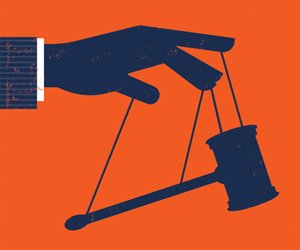We shouldn’t buy school choice rhetoric masquerading as civil rights
George W. Bush said it as he warned us about «the soft bigotry of low expectations.» Barack Obama said it. So did Mitt Romney, Arne Duncan, and John McCain.
And now Donald Trump is saying it, too. In his first joint-session address to Congress, President Trump promised that «our children will grow up in a nation of miracles» and added the familiar kicker: «Education is the civil rights issue of our time.» He said it right before he announced his plan to ask Congress to pass new legislation supporting school choice. His idea of a school reform «miracle,» apparently, is to convince America to accept choice, rather than equity, as the controlling idea in public education.
All of which raises the question: Is education the civil rights issue of our time?
I’m going to cut right to the chase: The answer is no. Or, at least, not really. If you ask me, civil rights is the civil rights issue of our time. While there is no doubt in my mind that education is a civil right, we shouldn’t narrow the scope of civil rights to begin and end with education.
I’m positive that making our schools better could do much to address the racial, social, and economic barriers to justice that many Americans face. I’m also certain that if we did more to address the larger social issues we face—such as continued racial discrimination, a fraying social safety net, the role of money in politics—our schools would improve immediately. This is, of course, because the relationship between public schools and society is a symbiotic one. Schools both reflect and shape the societies in which they exist, meaning that healthy schools make healthy societies, and vice versa. We should recognize the role public education can play in addressing social problems.
But what we need now, more than ever, is a comprehensive approach to solving these social problems that acknowledges that schools can only do so much, especially after having served as political punching bags for so long.
Instead, we’re being offered a false choice between a public education system that is truly accessible and accountable to the American public and a system that shares nothing in common with the one that Adlai Stevenson once described as «the most American thing about America.»
When President Trump invokes the language of civil rights, he is hoping to convince us that we need to be liberated from an oppressive system. Really, though, the promise of unfettered school choice threatens to push us all further apart, creating the kinds of divisions that truly make oppression real.
How did it come to this? The language of civil rights has certainly been part of the conversation in education for as long as most of us can remember—and rightfully so. The brave efforts of the young people at the forefront of school desegregation—like Linda Brown, Elizabeth Eckford, Ernest Green, and Ruby Bridges—helped transform public schools into places where our most difficult social issues were untangled in classrooms, lunchrooms, and locker rooms. Our society has been made better for it.
These are the true heroes of civil rights—not Donald Trump, Betsy DeVos, or others who invoke the language of civil rights but do little else to advance the cause. We once saw freedom as the ability to go to school and learn; now it’s being defined as the ability to choose a different school, much like you might choose a plumber or an electrician, or to choose not to attend school altogether.
More Opinion

They want us to believe that we do what’s best for society when we first do what’s best for ourselves, but this gets it exactly backward. The truth is that society is improved not when we think first of ourselves, but rather when we put others first. The children who integrated segregated schools in the 1950s and 1960s were not just enduring violence and vitriol for their own advancement, but for everyone who came after them. They were faced with formidable risks, and they took them anyway. Secretary DeVos was not taking a risk when she wrote checks from her bottomless bank account to Republican candidates and causes, and President Trump’s not risking anything by cynically co-opting the language of civil rights to push the idea that true freedom is not the freedom to be educated but the freedom to choose not to be educated. We all pay a price for it, though.
In the end, motives matter. People who are serious about protecting, preserving, and extending civil rights are the ones working to strengthen public schools, not weaken them. They’re the ones fighting every day for equal access and enhanced resources and for a strong curriculum that engages students in the study of social problems and encourages them to try to solve them. They’re the ones who remind us that education is a fundamental right for all, not a privilege to be reserved for a few. Those people are the true heroes of civil rights. We’d do well to follow their lead before it’s too late.
Source:
http://www.edweek.org/ew/articles/2017/05/17/no-education-isnt-the-civil-rights-issue.html







 Users Today : 24
Users Today : 24 Total Users : 35460155
Total Users : 35460155 Views Today : 38
Views Today : 38 Total views : 3418821
Total views : 3418821